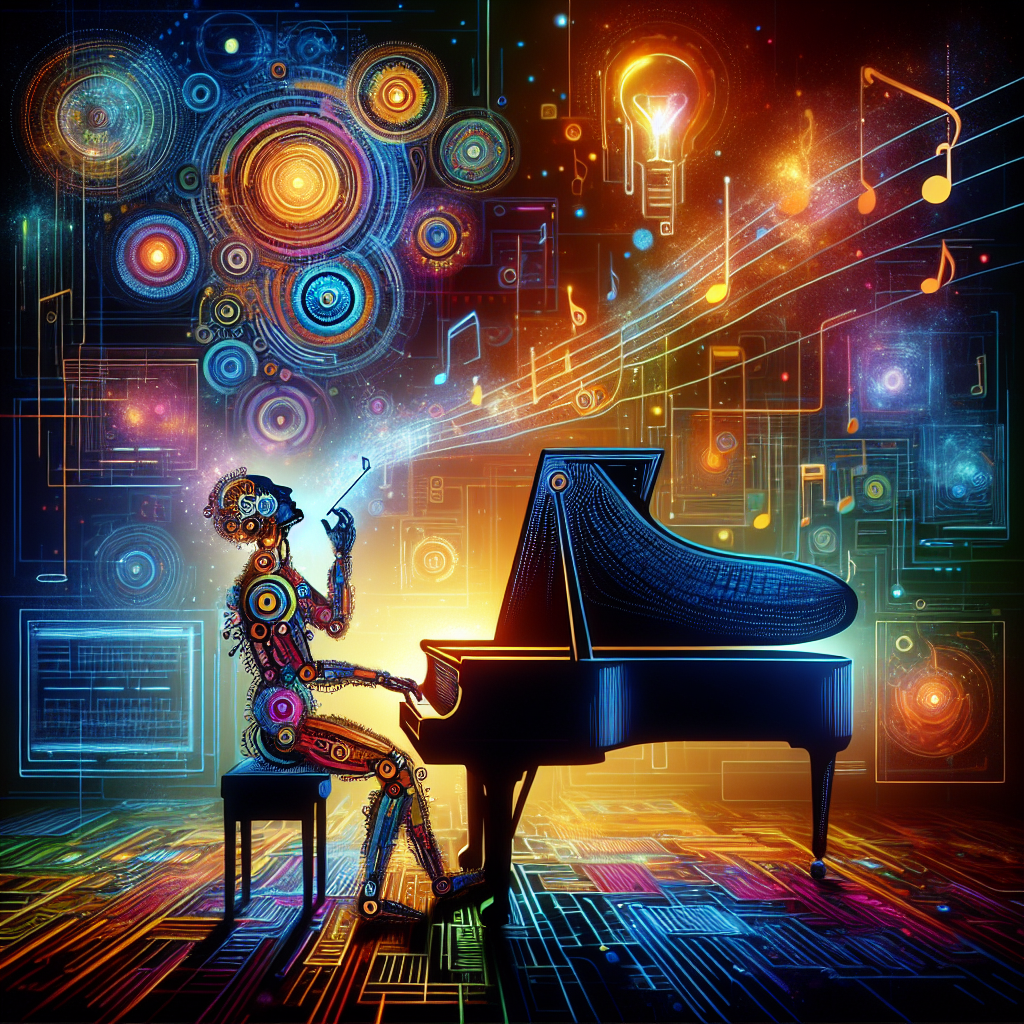AI in Music: Unlocking the Potential of Technology in Art
In recent years, artificial intelligence (AI) has made significant advancements in various industries, including music. AI technology has the potential to revolutionize the way music is created, produced, and consumed, offering new opportunities for artists, producers, and music lovers alike. From generating melodies and harmonies to creating personalized playlists, AI is changing the landscape of the music industry in exciting ways.
One of the most notable applications of AI in music is in the realm of composition. AI algorithms can analyze large amounts of data from existing music to generate new melodies, harmonies, and even entire songs. This has the potential to streamline the creative process for musicians and composers, providing them with new ideas and inspiration that they may not have thought of on their own.
AI can also be used to assist in the production and mixing of music. For example, AI-powered tools can analyze audio recordings to identify and remove background noise, adjust levels, and even suggest creative effects and processing techniques. This can help musicians and producers save time and resources, allowing them to focus on the creative aspects of music-making.
Furthermore, AI technology is changing the way music is consumed and discovered. Streaming platforms like Spotify and Apple Music use AI algorithms to create personalized playlists for users based on their listening habits and preferences. These algorithms analyze data such as listening history, genre preferences, and mood to curate playlists that are tailored to each individual user. This not only enhances the listening experience for users but also helps artists reach new audiences and gain exposure.
Despite the many benefits of AI in music, there are also concerns about its impact on the industry. Some critics argue that AI technology could lead to the devaluation of human creativity and talent, as machines take on more tasks traditionally performed by musicians and producers. There are also concerns about the potential for AI to be used to manipulate and control the music industry, as algorithms determine what music is promoted and distributed to the public.
However, proponents of AI in music argue that technology can be a valuable tool for artists and creators, enhancing their creative process and expanding their reach. By embracing AI technology, musicians and producers can explore new possibilities and push the boundaries of what is possible in music.
FAQs
Q: How is AI used in music composition?
A: AI algorithms can analyze data from existing music to generate new melodies, harmonies, and compositions. This can help musicians and composers discover new ideas and inspiration for their music.
Q: How is AI used in music production?
A: AI technology can assist in the production and mixing of music by analyzing audio recordings, removing background noise, adjusting levels, and suggesting creative effects and processing techniques.
Q: How is AI changing the way music is consumed?
A: Streaming platforms use AI algorithms to create personalized playlists for users based on their listening habits and preferences. This helps users discover new music and enhances their listening experience.
Q: What are the concerns about AI in music?
A: Some critics are concerned that AI technology could devalue human creativity and talent, and that it could be used to manipulate and control the music industry. However, proponents argue that AI can be a valuable tool for artists and creators.
In conclusion, AI technology has the potential to unlock new possibilities in music, from composition and production to consumption and discovery. By embracing AI in music, artists and creators can enhance their creative process, reach new audiences, and push the boundaries of what is possible in the music industry. While there are concerns about the impact of AI on the industry, the benefits of technology in art are clear, offering exciting opportunities for innovation and creativity in music.

